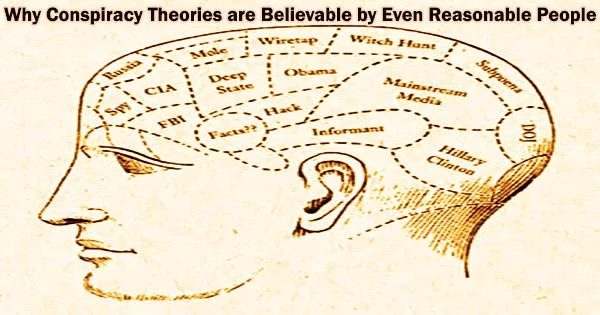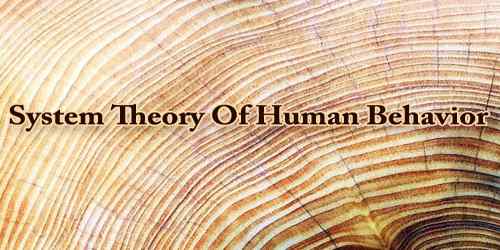There is little question that irrational conspiracy theory belief is a major social issue in today’s society. It is obvious that what was formerly thought to be a fringe phenomenon is not. Many studies have confirmed this, for instance revealing that 50% of Americans believe in at least one conspiracy theory.
The strong destructive impact of such views, as evidenced by the COVID-19 pandemic and the recent toxic political division, is also plainly evident now, if it wasn’t before.
Contrary to popular belief, conspiracy theories have always been quite pervasive. It has never been true that these theories are mostly held by eccentric or low-functioning members of society who are mentally ill.
The observation that belief in conspiracy theories is a mainstream phenomenon is one of the starting points for the deep and engaging analysis by Michael Shermer in his book: Conspiracy: Why the Rational Believe the Irrational. Shermer is the founding publisher and editor-in-chief of Skeptic magazine, a multiple New York Times bestselling author, and was a monthly columnist for Scientific American for 18 years. He is a leading expert on “why people believe weird things” (the title of his first book, in 1997).
He reminds us that conspiracies (“two or more people, or a group, plotting or acting in secret to gain an advantage or harm others immorally or illegally”) do occur quite often, and occasionally the conspirators are indeed people at high levels of democratically elected governments or trusted institutions.
Nevertheless, Shermer suggests keeping in mind what he calls a conspiracism principle: Never blame malice for something that may be attributed to ineptitude or happenstance. Furthermore, chance, coincidence, and contingency play a part in many true conspiracies. People who are more likely to believe in conspiracy theories, on the other hand, tend to think that everything is connected, nothing happens by accident, and there are no coincidences. They usually imagine conspirators as “preternaturally competent” and “unusually evil,” often with elaborately grand schemes.
I’m excited. I’m happy! Once you know the information you are not in fear; you’re, like, empowered! You are excited. You can’t wait for justice to go down, you can’t wait for the kids to be saved, you can’t wait for the bad guys to be put in jail.
QAnon YouTuber
A phenomenon cutting across demographics and political orientation
People on the political left frequently believe erroneously that holding conspiracy theories is primarily a right-wing tendency. Yet, to cite just two of many examples, 911 Truther conspiracies and GMO conspiracies have been predominantly believed by people on the left.
Political scientists Joseph Uscinski and Joseph Parent found that conspiracists (believers in conspiracy theories) “cut across gender, age, race, income, political affiliation, educational level, and occupational status.”
Education does appear to reduce conspiracism: Compared to 22% of those with postgraduate degrees, 42% of those without a high school education scored highly on the conspiratorial propensity scale. Yet, the fact that over one in five Americans with MAs or PhDs believe in conspiracies indicates that there are additional determining factors besides education.
Why do so many people believe conspiracy theories, even outlandish ones?
Shermer hypothesizes that there are three overarching factors at work, which he calls:
Proxy conspiracism: Many conspiracy theories are proxies for a different type of truth believed by the conspiracist “a deeper mythic, psychological, or lived-experience truth.” Because of this, the specifics of the conspiracy theory could be less important to the conspiracist than the “richer truths” they symbolize.
Tribal conspiracism: Adopting conspiracy theories could be driven more by the need to prove one’s allegiance to the tribe than by genuine belief in the plot in question. This could explain why a number of Republican politicians who appeared to be sensible and bright supported such a strange conspiracy idea as QAnon.
Constructive conspiracism: Some kinds of conspiracy theories may be rational and realistic in certain situations, such as those “pertaining to normal political institutions and corporate entities that are conspiring to manipulate the system to gain an unfair, immoral, and sometimes illegal advantage over others.” Therefore, conspiracism may be a rational response to a dangerous world. (Whereas theories involving “ultra-secret and über-powerful entities for which there is little to no evidence” are largely driven by paranoia.)
Shermer contends that these three major reasons are overlaid with a variety of secondary, widely acknowledged psychological and societal influences that support conspiracy theories:
Cognitive bias and habits of thought
(See footnote 9 for definitions, explanations and examples of the following)
- Motivated reasoning and confirmation bias
- Attribution bias
- Hindsight bias
- “Patternicity”
- “Agenticity”
- Cognitive dissonance
- Proportionality bias
- Monological thinking
- Oversimplification of complex problems
- Teleological thinking
- Transcendental thinking
- Locus of control
- Anxiety reduction
- “Myside” bias
- Negativity bias
- Anomaly hunting
Many of these even trouble the most intellectual and educated individuals, and as Shermer points out, they are even better at rationalizing and defending beliefs that they retain for less intelligent reasons.
Personality factors
Although the research on personality features that make people more likely to believe in conspiracies is not definitive, data do suggest that some traits are more closely linked to such a notion. These include (See footnote 10 for definitions and explanations):
- Low interpersonal trust
- Ideological eccentricity
- Excessive concern about personal safety
- Dangerous-world beliefs
- Hyperactive agency detection
- Schizotypal personality
- “Bullshit receptivity”
- Less science-mindedness
- Feelings of control
Entertainment value
An additional factor in the appeal of conspiracy theories, one also borne out by research, is their entertainment value “not unlike science fiction, fantasy, horror, detective, and adventure novels and films that titillate readers and viewers with fantastic Manichaean stories of good and evil forces and people plotting to assassinate a foreign leader, overthrow a political regime, conquer an evil empire, or even rule the world.”
Intuition
Academic researchers Eric Oliver and Thomas Wood have extensively researched susceptibility to conspiracy theory belief. In their 2018 book Enchanted America: How Intuition and Reason Divide Our Politics, they identify a more general factor accounting for such susceptibility, one that is broadly consistent with all the other factors discussed above:
Intuitionism – A strong tendency to utilize intuitive thinking (“gut” feelings) over evidence-based rational thinking.
“Our central argument is that the most important political division in the United States is […] between Rationalists and Intuitionists. Rationalists are people who comprehend reality using nonintuitive sources. They utilize abstract theories, philosophical deductions, and observable facts. They view social and political problems in a dispassionate manner, seeking pragmatic, technical solutions. They exist all over the political spectrum but generally share a common respect for science and reason. They may adhere to different philosophies, but inevitably, they all draw from the same intellectual wells dug by Locke and Kant, Smith and Mill, Keynes and Hayek.” – Oliver and Wood, Enchanted America
A person is more likely to be drawn to religious, spiritual, and other supernatural beliefs, paranormal beliefs, and unscientific alternative medicine the higher their Intuitionism score.
The internet and social media
Both conspiracy theories and their broad acceptance are nothing new. However, there is no denying that the internet and social media have greatly accelerated and eased their spread.
The social psychologist Jonathan Haidt provides a particularly excellent analysis of the dumbing-down effect of social media on civil discourse and rationality in his 2022 article in The Atlantic: “Why the Past 10 Years of American Life Have Been Uniquely Stupid.”
Societal stress
As we observed during the COVID-19 pandemic, societal stress, instability, and uncertainty increase the susceptibility of citizens to conspiracy ideas. The same is true during periods of war, economic hardship, and political unrest. Cultural anxiety about erosion of values may also contribute, as during the “culture wars” of the last few years.
Real conspiracies
Shermer gives numerous examples of true conspiracies from recent and distant history in order to show how they frequently develop, unravel, and ultimately come to light. He highlights the many differences compared with imagined conspiracies.
For instance, in actual conspiracies, things rarely go as planned, plans are derailed by unforeseen events and obstacles, and participants make mistakes, experience fear, have a change of heart, are unable to keep their mouths shut, deceive or betray one another, or become whistle-blowers motivated by moral principles or by fame and personal gain. The more complex a conspiracy and the more people it involves, the harder it is to control all the variables, pull off the plot, and keep it all secret.
In Parts II and III of his book, Shermer provides tips on how to determine which conspiracy theories are unlikely to be true, including a useful Conspiracy Detection Kit, and helpful tips on how to talk with your friends and relatives who have fallen for fallacious conspiracy theories.
Nobody is in control
Conspiracy theories have some appeal because, even when we think the evil people are trying to take over, it is more consoling to think that there is a simple order and consistency to the world. At least we, the cunning good guys, have discovered their secret plan and can battle virtuously to oppose their evil objectives.
The true complexity of the world is much harder to grasp.
“The main thing that I learned about conspiracy theories is that conspiracy theorists believe in a conspiracy because that is more comforting. The truth of the world is that it is actually chaotic. The truth is, that it is not the Jewish banking conspiracy, or the Gray aliens, or the 12-foot reptiloids from another dimension that are in control. The truth is far more frightening. Nobody is in control. The world is rudderless.” – Alan Moore
Finally, conspiracy theories are intuitively persuasive and comfortable for many of the same reasons why common, widespread beliefs like religion and spirituality are so natural to most of us, as Oliver and Wood point out.















